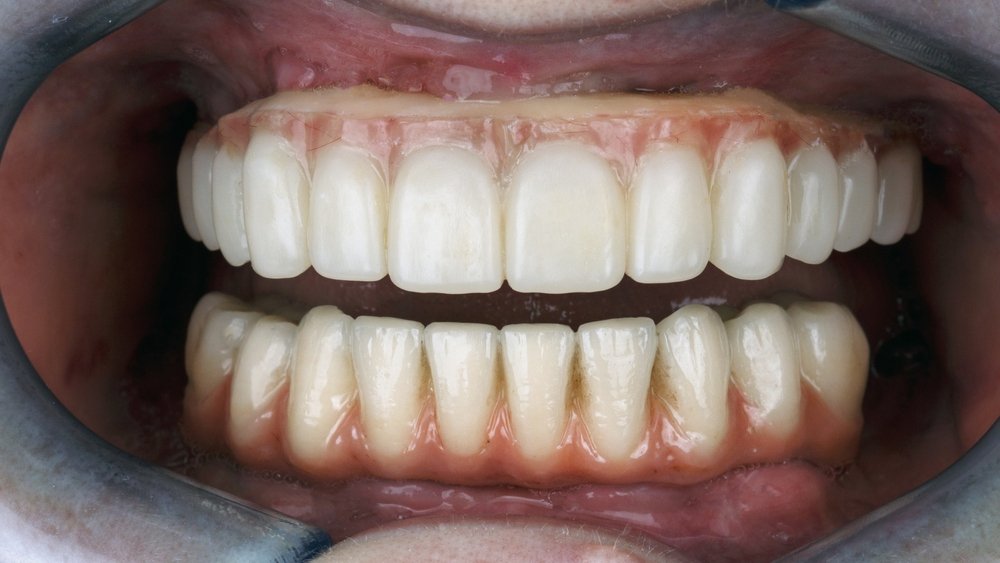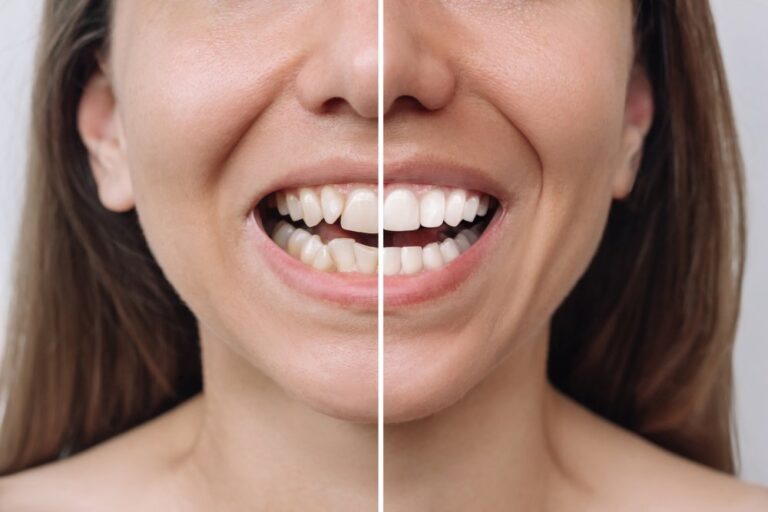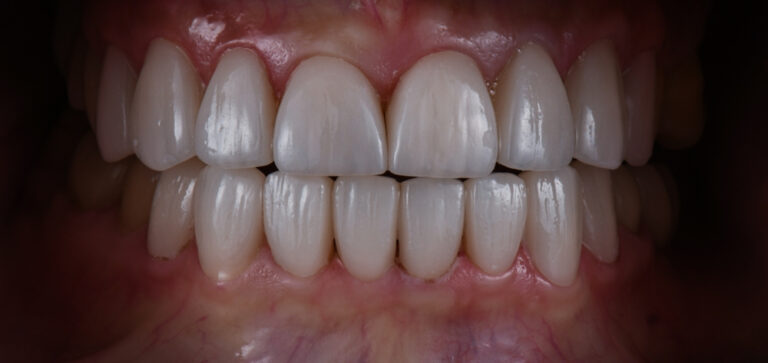The world of cosmetic dentistry has seen significant advancements over the years, with porcelain veneers emerging as a popular choice for those seeking to enhance their smiles. These thin shells, custom-made to fit over the front surface of teeth, can transform a smile in just a few appointments. But one question that often arises is: Are porcelain veneers permanent? Let’s delve into this topic to provide a comprehensive answer.
The Lifespan of Porcelain Veneers: How Long Do They Last?
Porcelain veneers are designed to be a long-lasting solution for cosmetic dental concerns. On average, they can last anywhere from 10 to 15 years, and in some cases, even longer. However, it’s essential to note that while they are durable and robust, they aren’t entirely “permanent” in the sense that they’ll last a lifetime without any need for replacement or repair.
Several factors can influence the longevity of porcelain veneers:
- Material Quality: High-quality porcelain tends to last longer than cheaper alternatives.
- Dental Expertise: The skill of the dentist placing the veneers plays a crucial role in their lifespan. Proper placement can ensure that veneers remain intact and look natural for years.
- Oral Habits: Habits such as teeth grinding, nail-biting, or using teeth as tools can reduce the life of veneers.
- Oral Hygiene: Regular brushing, flossing, and dental check-ups can prolong the life of veneers.
In essence, while porcelain veneers offer a long-term solution for enhancing one’s smile, they aren’t entirely permanent. With proper care and maintenance, however, they can serve an individual well for many years, making them a worthwhile investment for many.
Factors Influencing the Longevity of Veneers
The lifespan of porcelain veneers can vary significantly from one individual to another. While they are crafted to be durable and resistant to staining, several factors can influence how long they last:
- Oral Care Routine: Just like natural teeth, veneers require regular brushing and flossing. Neglecting oral hygiene can lead to gum disease or tooth decay around the veneer, potentially shortening its lifespan.
- Dietary Habits: Consuming foods and drinks that are known to stain teeth, such as coffee, red wine, and berries, can affect the brightness of veneers. While porcelain is resistant to staining, maintaining a balanced diet can help in preserving their luster.
- Teeth Grinding: Bruxism, or teeth grinding, can place undue stress on veneers, leading to chips or cracks. Individuals known to grind their teeth might require a night guard to protect their veneers.
- Accidents and Trauma: Physical trauma, like a blow to the face, can damage veneers. It’s essential to wear mouthguards during sports or other high-risk activities.
- Underlying Dental Issues: Pre-existing dental problems, such as gum disease, can impact the longevity of veneers. It’s crucial to address any underlying dental concerns before getting veneers.
- Quality of the Dental Laboratory: The expertise of the dental lab crafting the veneers plays a significant role in their durability and fit.
Understanding these factors can help individuals take the necessary precautions to ensure their veneers last as long as possible. Regular check-ups with a dentist can also aid in identifying and addressing potential issues before they escalate.
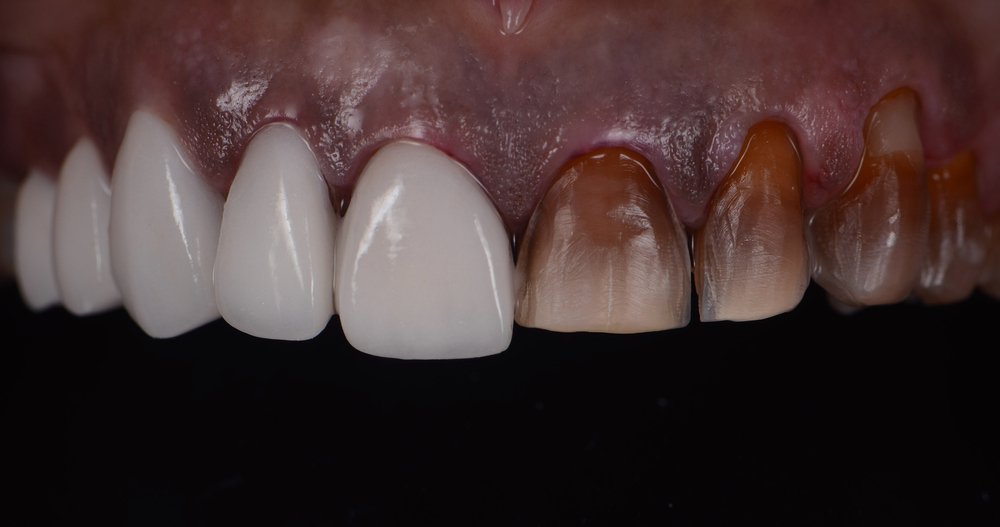
Maintenance and Care: Prolonging the Life of Your Veneers
Ensuring that porcelain veneers remain in top condition requires a combination of professional dental care and at-home maintenance. While veneers are resistant to staining and decay, the teeth and gums surrounding them are not. Hence, a proactive approach to oral care is paramount.
Daily Care Recommendations for Veneers
Porcelain veneers, while robust and stain-resistant, still require daily care to maintain their pristine appearance and ensure their longevity. Here are some daily care recommendations for those with veneers:
- Regular Brushing: Brush your teeth at least twice a day using a non-abrasive fluoride toothpaste. This helps in preventing plaque build-up around the veneers and keeps the gums healthy.
- Flossing: Floss daily to remove food particles and plaque from between the teeth and veneers. This step is crucial in preventing gum disease and potential veneer damage.
- Avoid Hard Foods: While veneers are durable, biting down on hard foods like ice, hard candies, or even some nuts can cause them to chip or crack.
- Limit Staining Foods and Drinks: Even though porcelain veneers are resistant to staining, it’s a good practice to limit the intake of beverages like coffee, tea, red wine, and foods like berries, which can stain the edges of veneers over time.
- Wear a Mouthguard: If you’re involved in contact sports or activities that might result in facial trauma, it’s advisable to wear a mouthguard to protect your veneers from potential damage.
- Avoid Grinding and Clenching: If you have a habit of grinding or clenching your teeth, consider getting a night guard. This will help protect your veneers from excessive force and potential damage.
- Regular Dental Check-ups: Schedule regular dental check-ups every six months. This allows your dentist to monitor the condition of your veneers and address any potential issues early on.
Regular Dental Check-ups and Veneer Maintenance
Routine dental visits are not just for cleaning and check-ups; they’re also an opportunity for your dentist to inspect the condition of your veneers. Over time, even with the best care, veneers might require some maintenance:
- Polishing: Your dentist can polish your veneers to restore their original shine and luster, especially if you consume a lot of staining foods and drinks.
- Resealing: The bond between the veneer and your tooth might weaken over time. Your dentist can reseal this bond to ensure the veneer remains securely in place.
- Replacement: While rare, sometimes veneers can get damaged and might need replacement. Regular check-ups ensure that any damage is caught early and addressed promptly.
- Gum Health: The health of your gums is crucial to the longevity of your veneers. Your dentist will check for signs of gum disease, which can impact the base where your veneers are attached.
Incorporating these maintenance steps into your dental care routine can significantly enhance the lifespan of your veneers, ensuring they remain a long-lasting investment in your smile.
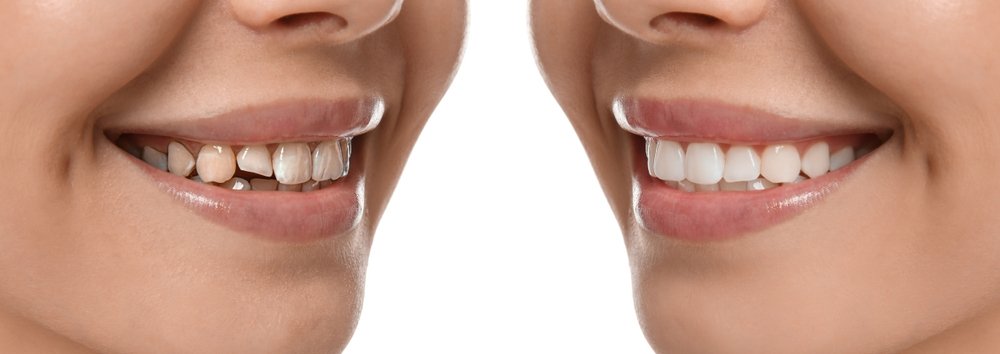
Potential Issues and Solutions: When Veneers Might Need Replacement
Porcelain veneers are renowned for their durability and lifelike appearance. However, like any dental restoration, they aren’t immune to potential issues. Understanding these challenges can help you take proactive measures and ensure the longevity of your investment.
- Chipping or Cracking: While porcelain is a robust material, veneers can chip or crack if exposed to excessive force, like biting down on hard foods or experiencing a facial injury. If the damage is minor, it might be repairable, but significant damage often requires a replacement.
- Discoloration at the Edges: Over time, the adhesive bonding the veneer to your tooth might discolor, especially if you consume a lot of staining foods and beverages. This can result in a noticeable line at the edge of the veneer.
- Loosening or Debonding: On rare occasions, a veneer might debond or become loose. This can happen due to wear and tear, trauma, or issues with the bonding process during the initial placement.
- Tooth Sensitivity: Some patients might experience increased sensitivity to hot or cold after getting veneers. This usually subsides, but if it persists, it’s essential to consult with your dentist.
- Gum Tissue Response: In some cases, the gum tissue might recede slightly after the placement of veneers, exposing the edge of the veneer or the base of the tooth.
Repair vs. Replacement: What’s the Best Course of Action?
When facing issues with your veneers, the decision between repair and replacement depends on the nature and extent of the problem:
- Minor Chips and Cracks: Small imperfections might be repairable using composite resin, which can be color-matched to your veneer.
- Major Damage: Significant cracks, deep chips, or a broken veneer typically require a full replacement to restore the appearance and function.
- Debonding: If a veneer comes off, it’s crucial to see your dentist immediately. In some cases, it can be rebonded, but often, a new veneer might be necessary.
- Discoloration: If the edge of your veneer becomes discolored due to the bonding agent, a professional cleaning or polishing might help. Persistent issues might necessitate a replacement.
In all situations, consulting with your dentist is crucial. They can assess the condition of your veneer, provide recommendations, and ensure that your smile remains radiant and functional.
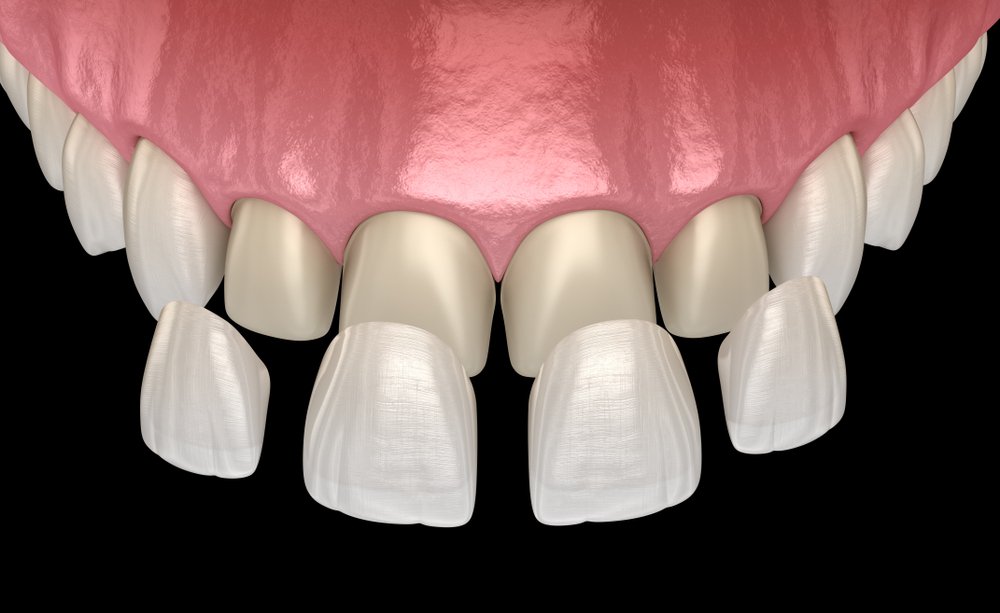
Making an Informed Decision: Are Permanent Veneers Right for You?
Choosing to get porcelain veneers is a significant decision that requires careful consideration. While they offer transformative results, understanding their permanence, benefits, and potential challenges is crucial.
- Assessing Your Dental Needs: Before opting for veneers, it’s essential to have a thorough dental examination. This ensures that your teeth and gums are healthy and that veneers are a suitable solution for your dental concerns.
- Understanding the Commitment: Veneers are a long-term commitment. Once placed, the process is irreversible, as a small amount of enamel is removed to accommodate the veneer.
- Cost Implications: While veneers are an investment in your smile, it’s essential to understand the cost implications, including potential maintenance or replacement costs down the line.
- Long-Term Benefits: Veneers offer a range of benefits, from aesthetic enhancements to improved confidence and self-esteem. Weighing these benefits against potential challenges can help you make an informed decision.
Assessing Your Dental Needs and Long-Term Goals
Before diving into the world of porcelain veneers, it’s essential to take a step back and evaluate your unique dental needs and long-term aesthetic goals. Here’s a guide to help you make an informed decision:
- Dental Health First: Before considering any cosmetic procedure, ensure your oral health is in top shape. Issues like cavities, gum disease, or untreated infections should be addressed first. A healthy mouth will support the longevity and success of your veneers.
- Determine Your Aesthetic Goals: What do you hope to achieve with veneers? Whether it’s correcting discoloration, gaps, misalignments, or chipped teeth, having a clear vision will guide the treatment process.
- Research and Consultation: Knowledge is power. Researching and understanding the procedure, benefits, potential challenges, and aftercare is crucial. Schedule consultations with experienced cosmetic dentists to discuss your goals, ask questions, and get expert opinions.
- Consider Alternatives: While porcelain veneers are a popular choice, they aren’t the only option. Discuss potential alternatives like composite veneers, dental bonding, or orthodontic treatments with your dentist to see if they might better suit your needs.
- Think Long-Term: Veneers are a long-term commitment. Consider factors like maintenance, potential replacements in the future, and how they fit into your lifestyle. For instance, if you’re an athlete or engage in contact sports, you might need to take extra precautions to protect your veneers.
- Budget and Financing: Understand the financial aspect of getting veneers. While they are an investment in your smile and confidence, it’s essential to consider the initial costs and any future expenses related to maintenance or potential replacements.
